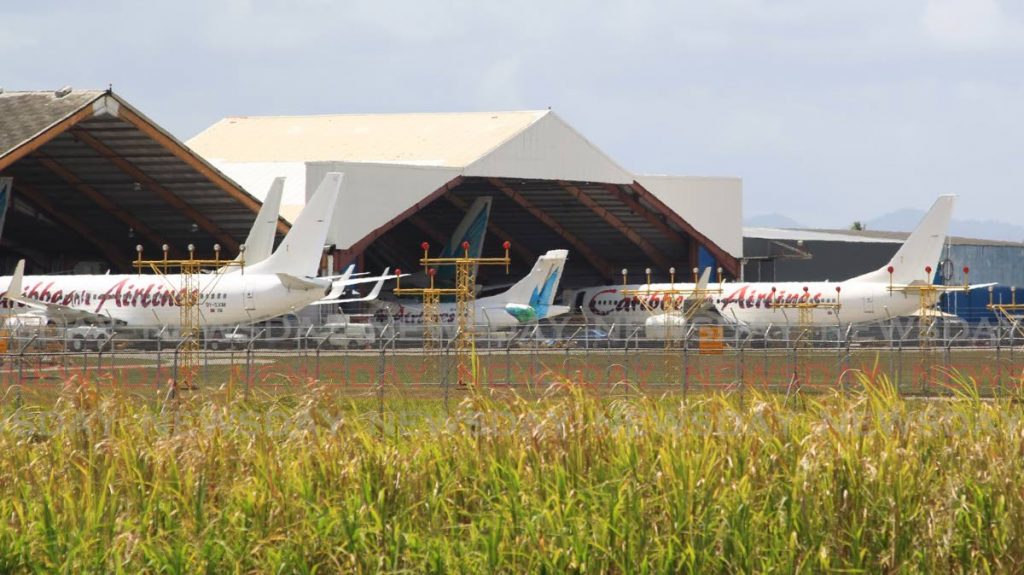The restructuring of CAL

RAMESH LUTCHMEDIAL
AT A virtual news conference on June 15, Minister of Finance and Corporation Sole Colm Imbert stated that the Government cannot bail out Caribbean Airlines (CAL) to the tune of $700 million in 2021 “unless the airline gets itself ready and makes itself as efficient as possible for resumption of flights.”
The minister further stated that whatever system is put in place to allow the resumption of flights, CAL will be required to make a presentation to the wider public and let everybody know what the restructured airline would look like because the Government cannot spend another $700 million of taxpayers’ money on CAL.
On June 21, CAL announced a loss of, according to its unaudited financial results for the first quarter of 2021, $172.7 million (US$25.7m) and a 75 per cent decline in revenue, compared to the same period in 2020. The losses follow a similar downturn in 2020, which saw an operating loss of $738 million (US$109.2m) compared to operating profits for 2018 and 2019.
According to CAL, until air travel regains its pre-covid19 momentum, the airline will need to adjust its operations as passenger demand in the short to medium term is not going to recover sufficiently to support the existing company structure after the reopening of the borders.
CAL added that it is required to take further steps to ensure it has a sustainable business model for 2021 and beyond. These steps include major cost reductions in all areas of operation, specifically its human resource complement, its fleet and other assets, and its route network.
The objectives of CAL’s strategic plan were premised upon, among other things, the replacement of the ageing Boeing 737-800 fleet with the more fuel-efficient and technologically-advanced Boeing 737 Max aircraft. However, the worldwide grounding of the Boeing 737 Max fleet and the covid19 pandemic, over which the airline had no control, significantly impacted the objectives of its strategic plan and negatively affected its projected financial results.
While CAL proposed actions in restructuring to become more efficient are strategically correct, there are some critical areas that the Government should consider.
A critical area for consideration is management autonomy. CAL is a majority-owned state enterprise incorporated under the Companies Act and reports to Corporation Sole. The airline is required to comply with the requirements of the state enterprises performance monitoring manual as underscored by the initial and follow-up reports on CAL by the Joint Select Committee on State Enterprises laid in Parliament.
The basic realism of the airline industry is that it is very dynamic, capital intensive, hyper competitive and highly regulated due to stringent international safety standards. Most of CAL’s operations are outside of TT in foreign jurisdictions where it must comply with a plethora of rules and regulations. This requires rapid real-time tactical and strategic business decision-making. The manual requirements can hinder efficiency at CAL and stymie management, especially with public service bureaucracy being what it is.
Therefore, as part of any restructuring to make the airline more efficient, the Government should exempt CAL from the requirements of the manual. Corporation Sole appointed a board of directors comprising competent people led by a successful businessman, that, together with the executive team, can manage the airline as a business in accordance with good corporate governance practices in keeping with the Companies Act. Also, there is adequate parliamentary oversight of CAL through the Public Accounts (Enterprises) Committee and the Joint Select Committee on State Enterprises.
Another critical area is CAL’s administrative and maintenance facilities. The condition and layout of the present facilities, which are very old, impedes efficiency. The airline requires a new SMART headquarters with a robust information technology platform to boost administrative efficiency.
Likewise, modern hangar facilities equipped with specialised tools and equipment are required to maintain the technologically advanced Boeing 737 Max aircraft in accordance with international safety standards.
Another area for consideration by the Government is CAL’s long-term debt and liabilities. Its accounts have revealed total liabilities of US$250,374,991, with accumulated losses of US$454,550,903.
According to ICAO (International Civil Aviation Organization) and IATA (International Air Transport Association), the post-covid19 recovery of the global airline industry, particularly in Latin America and the Caribbean, will be slow. It will also take time to restore public confidence in the Boeing 737 Max. In the recovery period, CAL will be challenged to generate operating revenues to meet its fixed and variable costs inclusive of aircraft lease charges.
Therefore, to assist the Caribbean in sustaining its proposed revised business model, the Government, which faithfully supported CAL and its predecessor BWIA through loan guarantees and cash injections, should consider restructuring the airline’s debts with some degree of debt forgiveness.
Ramesh Lutchmedial is a retired director general of civil aviation


Comments
"The restructuring of CAL"